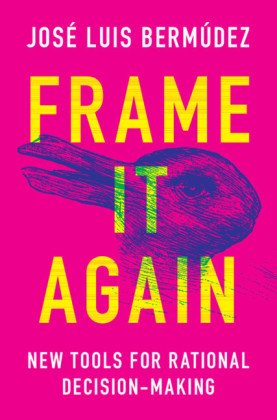Frame It Again - New Tools for Rational Decision-Making
| Verlag | Cambridge University Press |
| Auflage | 2020 |
| Seiten | 340 |
| Format | 15,7 x 2,3 x 23,4 cm |
| Gewicht | 630 g |
| Artikeltyp | Englisches Buch |
| EAN | 9781107192935 |
| Bestell-Nr | 10719293UA |
Learn how to tackle personal dilemmas and the deadlock of political discourse by using this book's rational framing techniques.
Framing effects are everywhere. An estate tax looks very different to a death tax. Gun safety seems to be one thing and gun control another. Yet, the consensus from decision theorists, finance professionals, psychologists, and economists is that frame-dependence is completely irrational. This book challenges that view. Some of the toughest decisions we face are just clashes between different frames. It is perfectly rational to value the same thing differently in two different frames, even when the decision-maker knows that these are really two sides of the same coin. Frame It Again sheds new light on the structure of moral predicaments, the nature of self-control, and the rationality of co-operation. Framing is a powerful tool for redirecting public discussions about some of the most polarizing contemporary issues, such as gun control, abortion, and climate change. Learn effective problem-solving and decision-making to get the better of difficult dilemmas.
Inhaltsverzeichnis:
1. Priming the pump: Framing and the litany of human irrationality; 2. Framing: The classic experiments; 3. Where the rubber hits the road: Frames, investors, and markets; 4. Juliet's principle; 5. Rational frames; 6. Agamemnon and climate change; 7. Framing temptation and reward: The challenges of self-control; 8. Chickens and chariot races: Framing in game theory; 9. Fair's fair: Framing for cooperation and fairness; 10. Getting past No: Discursive deadlock and the power of frames; 11. Opening the door to non-Archimedean reasoning; Appendix. Frames in the brain
Rezension:
'This is an engaging and authoritative tour through the world of frames. Whether you are interested in psychology, economics, or sociology, framing effects are indeed central to the power of human reason, rather than its undoing.' Nick Chater, Professor of Behavioural Science, Warwick Business School, and author of The Mind Is Flat

